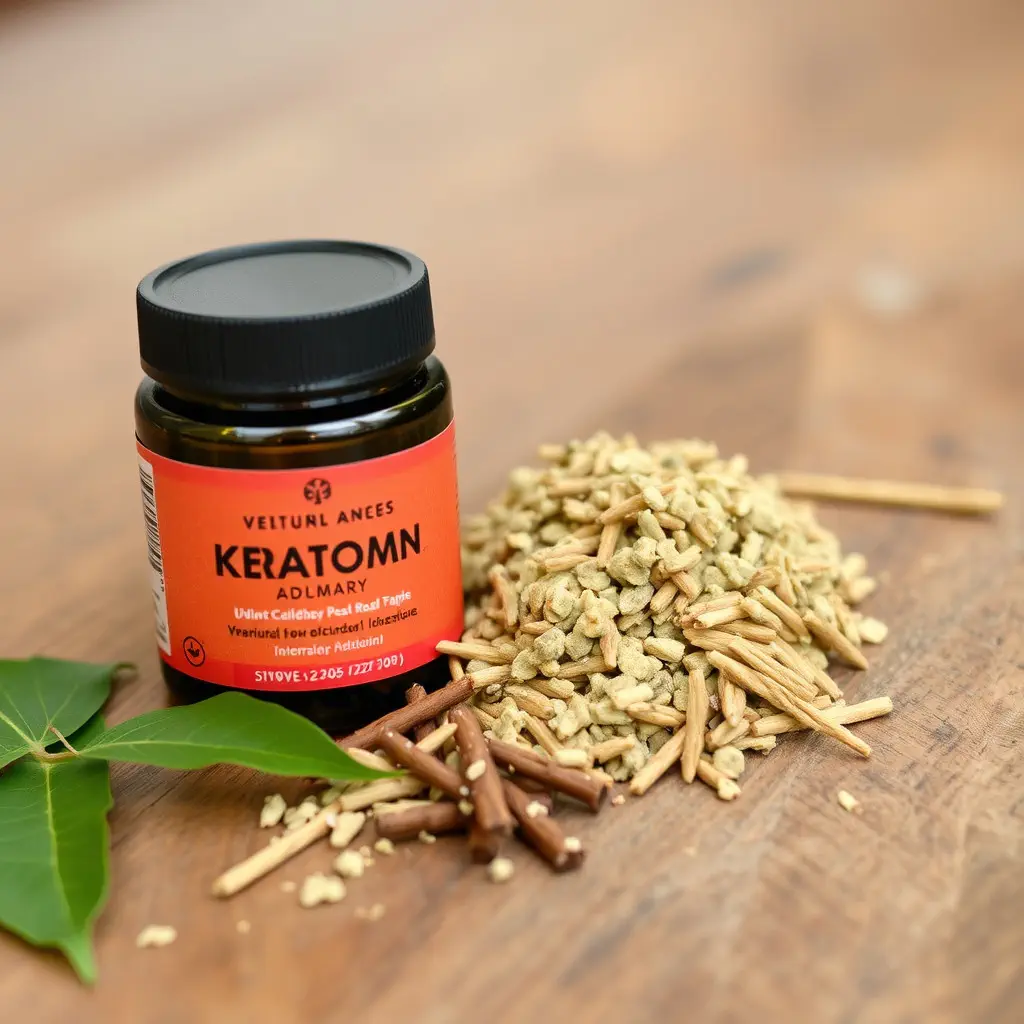Kratom, derived from the Mitragyna speciosa tree, has been a topic of interest for athletes seeking performance enhancements due to its active compounds like mitragynine and 7-hydroxymitragynine, which can influence energy levels, pain management, and mood. However, its psychoactive nature and potential side effects necessitate careful consideration by athletes. In Michigan, kratom's legal status is complex: it has been classified as a controlled substance, making it illegal to purchase or consume within the state. The legal landscape of kratom in Michigan is subject to change at both state and federal levels, with varying regulations across local municipalities. Athletes must stay informed about these changes to ensure compliance with state laws and avoid violations of sport-specific rules enforced by organizations like the World Anti-Doping Agency (WADA). Given this complexity, athletes should consult healthcare professionals before considering kratom as part of their training regimen, and always verify its current legal status in Michigan. This due diligence is crucial for athletes to navigate the evolving regulations and maintain eligibility within their sport.
Exploring the intersection of natural supplements and athletic prowess, this article delves into the role of kratom as a performance enhancer, particularly within the legal framework of Michigan. With its status as both a contentious and increasingly popular substance, we will navigate the complexities surrounding kratom’s legality, its potential benefits for athletes, and the critical regulations governing its use. Join us as we dissect the nuances of incorporating kratom into athletic routines while adhering to the state’s guidelines.
- Understanding Kratom's Role in Athletic Performance: Is Kratom Legal in Michigan?
- Kratom as a Performance Enhancer: Benefits, Risks, and Regulations in Michigan
- Navigating the Legal Landscape of Kratom for Athletes in Michigan: Usage Guidelines and Best Practices
Understanding Kratom's Role in Athletic Performance: Is Kratom Legal in Michigan?

Mitigating factors must be considered when evaluating the role of kratom in athletic performance support. Kratom, a plant-based product derived from the leaves of the Mitragyna speciosa tree, has gained attention for its potential effects on energy levels, pain relief, and mood enhancement, all of which can influence an athlete’s performance. The active compounds found in kratom, mitragynine and 7-hydroxymitragynine, interact with the body’s opioid receptors, which may aid in increased stamina and reduced fatigue during training or competition. However, it is crucial to approach the use of kratom with caution due to its psychoactive properties and the potential for side effects.
When incorporating kratom into athletic regimens, athletes in Michigan must be aware of its legal status within the state. As of my knowledge cutoff date, kratom is a controlled substance in Michigan, meaning it is not legally available for purchase or consumption. The Drug Enforcement Administration (DEA) initially placed kratom into Schedule I of the Controlled Substances Act in 2016, although this decision was later overturned due to public outcry and subsequent legal challenges. Currently, the legality of kratom is subject to state-specific regulations, with Michigan being one of the states that have restricted its use. Athletes looking to leverage kratom for performance enhancement should first verify its legal status in their jurisdiction and thoroughly research potential benefits and risks associated with its use, ensuring compliance with local laws and guidelines.
Kratom as a Performance Enhancer: Benefits, Risks, and Regulations in Michigan

Kratom, a plant native to Southeast Asia, has gained attention in athletic communities for its potential performance-enhancing properties. The active compounds found in kratom leaves, mitragynine and 7-hydroxmitragynine, are believed to offer benefits that can support athletic performance. These compounds may increase energy levels, reduce fatigue, enhance endurance, and potentially alleviate pain, which could be advantageous for athletes seeking to improve their training regimens or competitive results. However, while kratom may offer these potential benefits, it’s crucial for athletes to be aware of the associated risks and the legal status of the substance in their jurisdiction.
In Michigan, the legality of kratom is a subject of ongoing discussion and regulation. As of the knowledge cutoff date, kratom is legally available in the state but has been subject to legislation that aims to regulate its sale and consumption. The Michigan Department of Agriculture and Rural Development (MDARD) oversees the regulations surrounding kratom, classifying it as an adult-use product with restrictions on its sales to minors. Athletes considering the use of kratom should be aware of the specific laws within their locality as these can change over time. It’s essential to stay informed about the evolving legal landscape because the use of banned or controlled substances, even if initially legal, can lead to disqualification and penalties in competitive sports, where many athletes may participate. The World Anti-Doping Agency (WADA) regularly updates its list of prohibited substances, and kratom’s status is subject to these changes. Therefore, athletes must verify the current status of kratom with both state regulations and sport-specific governing bodies to ensure compliance and maintain the integrity of their athletic endeavors.
Navigating the Legal Landscape of Kratom for Athletes in Michigan: Usage Guidelines and Best Practices

Athletes in Michigan seeking to incorporate kratom into their performance regimen must navigate a complex legal landscape that varies across different jurisdictions within the state and is subject to change at the federal level. Kratom, derived from the leaves of the Mitragyna speciosa tree, has gained attention for its potential ergogenic benefits, including increased stamina, pain relief, and improved mood. However, the legal status of kratom in Michigan is not uniform; while it is legal at the state level, some municipalities have enacted their own regulations, which may include age restrictions or outright bans. Therefore, athletes must be aware of local ordinances to ensure compliance.
To responsibly use kratom as part of an athletic performance regimen in Michigan, it is crucial to stay informed about the latest legal developments at both state and local levels. Best practices for athletes include consulting with healthcare professionals before incorporating kratom into their training or competition routine. This consultation can help athletes understand the potential benefits and risks associated with kratom use, as well as any interactions with other supplements or medications they may be taking. Additionally, monitoring the effects of kratom on personal performance and adhering to responsible usage guidelines will aid in maintaining eligibility under sports governing bodies’ regulations. Athletes should also consider the potential for drug testing and ensure that their use of kratom does not contravene any sport-specific rules or regulations.
In conclusion, the exploration of kratom’s role in athletic performance has highlighted both its potential benefits and the complex regulatory environment surrounding its use, particularly in Michigan. As discussed, while some athletes may find kratom to be a helpful tool for enhanced performance, it is imperative to approach its consumption with caution, adhering strictly to local laws and regulations. It’s crucial for athletes to weigh the potential risks against the benefits, ensuring they remain within legal boundaries and follow ethical guidelines. With ongoing research and evolving legislation, staying informed on the status of kratom legality—as per Michigan’s current stance—is essential for anyone considering its use as part of their performance regimen. Athletes should prioritize their health and compliance with sports governing bodies to maintain fair competition and personal safety.






